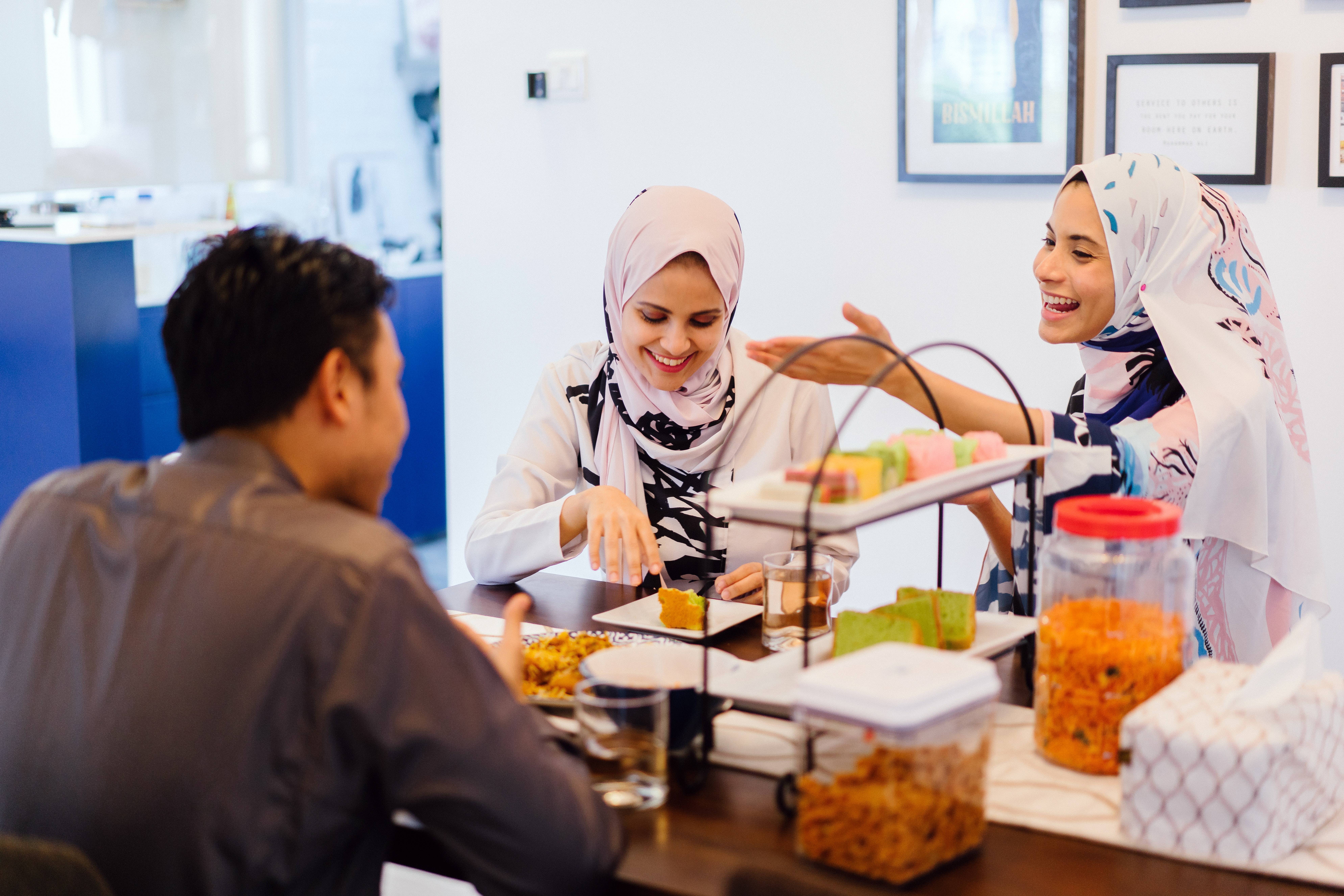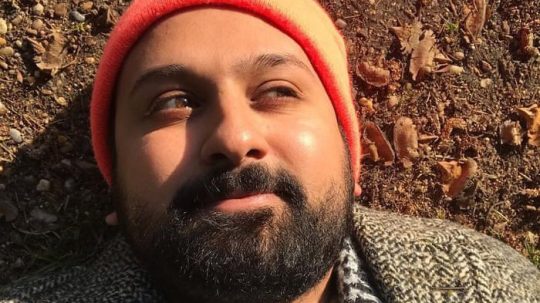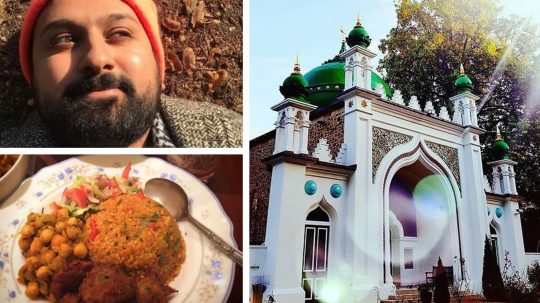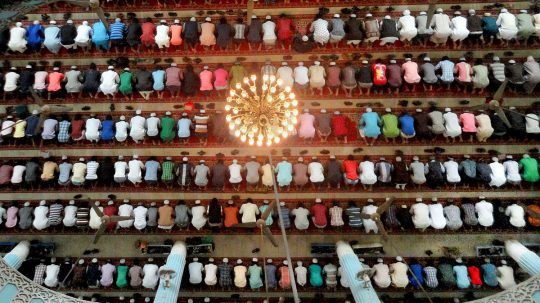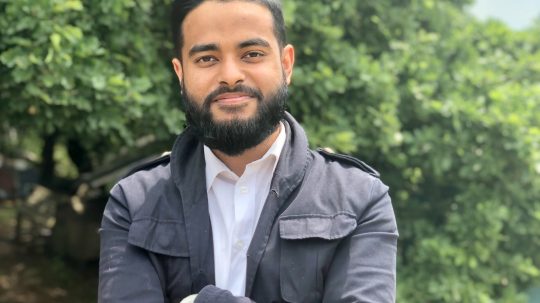As the holy month of Ramadan draws to a close, as many as 2.6 million Muslims across the UK are set to take part in Eid celebrations under lockdown.
The exact date of Eid al-Fitr, the festival of breaking the fast, varies depending on the sighting of the crescent moon and is set to be celebrated on 24 May this year.
It marks the end of a month in which worshippers fast from sunrise to sunset and engage in self-reflection – giving thanks, seeking forgiveness and helping the needy.
Usually, Muslims meet with friends and family to exchange gifts and attend congregational prayers. But, with social distancing measures in place, Eid will be very different this year.
As many Muslims look forward to celebrating Eid at this difficult time, a few of us wanted to record this message. We would be grateful if the wider community would support us and retweet. Thank you @ArmeenaRK @BegumNadiya @nazirafzal @Saqlain_Mushtaq @AzharMahmood11 #eidathome pic.twitter.com/reg8jCh5FH
— Adil Ray OBE (@adilray) May 21, 2020
The Covid-19 pandemic, and the government’s response to it, is having a far-reaching impact on our human rights.
Ahmad Shaheed, the UN’s independent expert on freedom of religious belief, last month urged world leaders to combat Covid-19-related religious intolerance which is flaring up across the world.
“States, all religious leaders and faith actors should step up in promoting social inclusion and solidarity as well as combating incitement to hatred through engagement and education,” he said.
Many people in the UK clearly support this sentiment, not least 100-year-old Dabirul Islam Choudhury – who raised more than £170,000 for Covid-19 relief by walking laps of his garden.
Over the course of Ramadan, EachOther has been asking worshippers what’s on their mind this year. Here are just a few voices from across the UK on what the holy month has meant to them.
‘We are all equal’
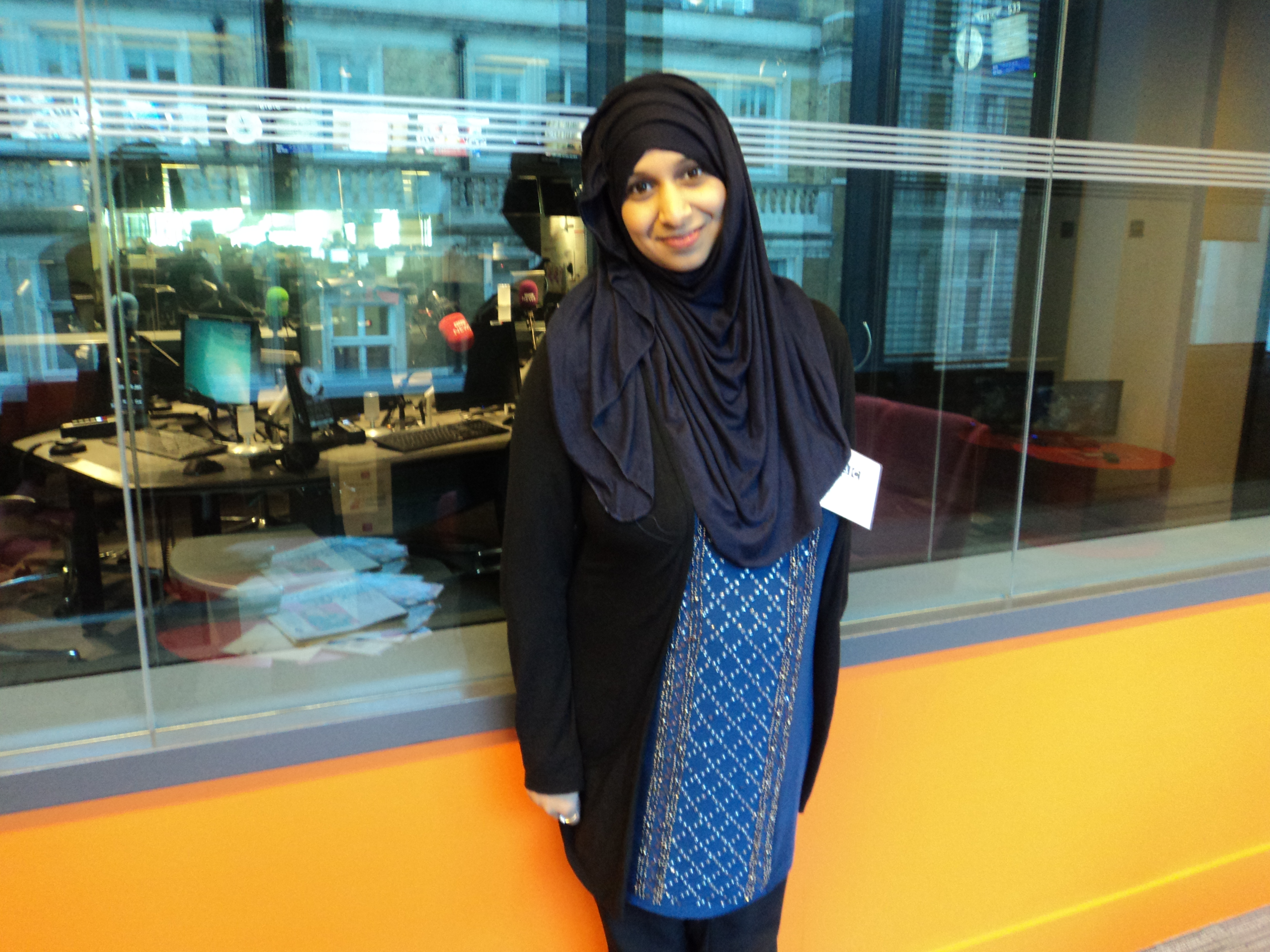
Image courtesy of Tasnim Nazeer.
This time last year, Tasnim Nazeer was marking Ramadan at Glasgow Mosque in Scotland.
This year she has been staying at home to save lives. Social distancing rules have meant that she has not shared Iftar meals – in which the fast is broken at sunset – with extended family and friends.
“It will be a different experience but will give us more time to spend just me, the kids and husband reflecting on the essence of Ramadan,” she told EachOther last month.
“An aspect of Ramadan is about selflessness, charity and giving and I think it coincides with many human rights principles such as participation, accountability, empowering ourselves through thinking of others and helping those in need.”
She added: “Ramadan provides us with a time to reflect on this and do our best to be the best versions of ourselves to better the society at large and help the wider community irrespective of faith, colour, sexuality or any other factor.
“We are all equal and I feel that Ramadan makes us experience the plight of those who do not have anything to eat.”
Asked what human rights issues are on Tasnim’s mind, she spoke of the lack of PPE for NHS staff and the disproportionate number of black and minority ethnicity (BAME) doctors and nurses that have died from Covid-19. “These issues must be investigated with immediate affect,” she said.
‘We want to do our bit’
-
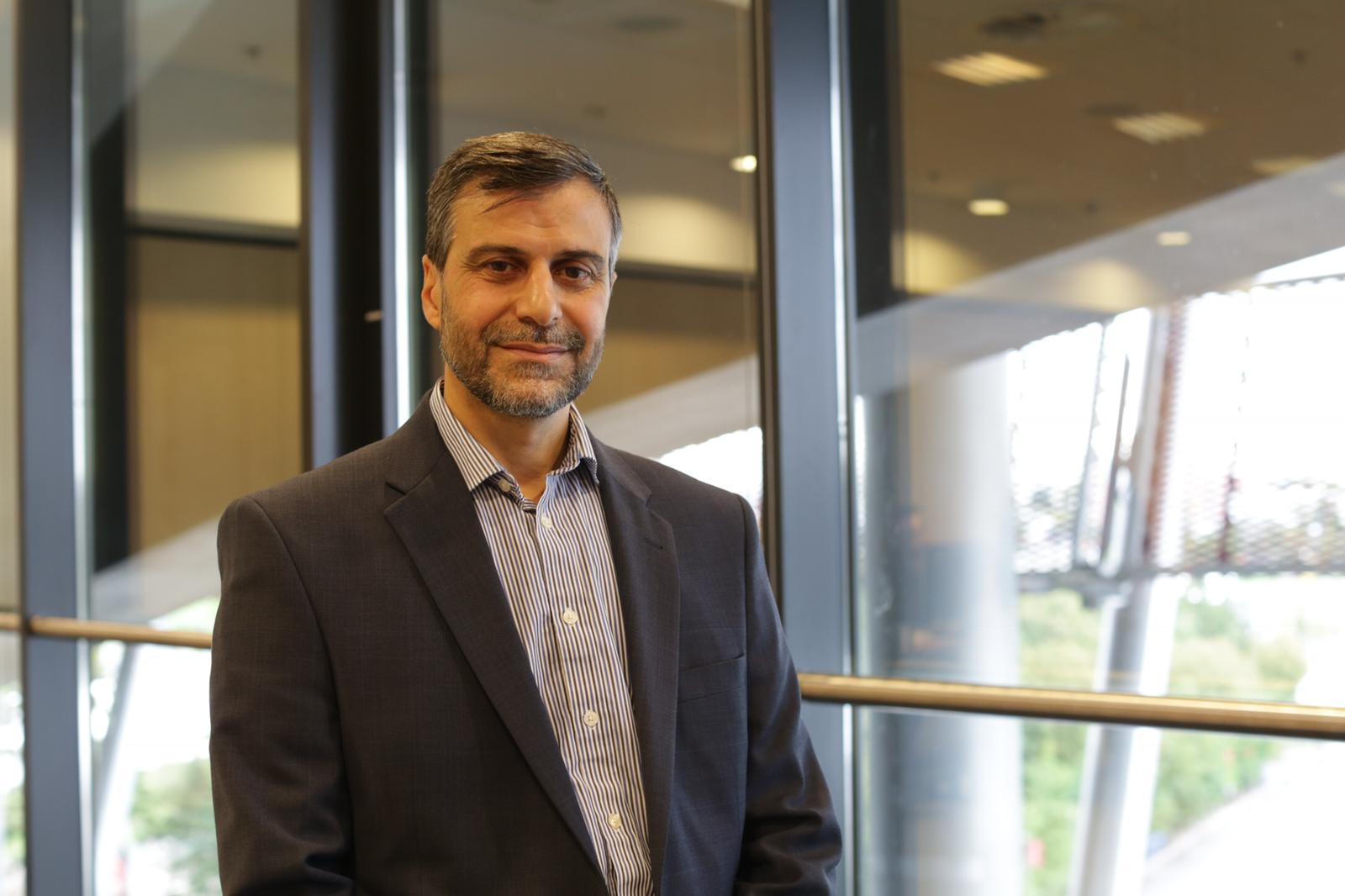
Mohammed Kozbar, chairman of Finsbury Park mosque. Credit: Supplied
Earlier this month Mohammed Kozbar, chairman of north London’s Finsbury Park mosque, described Ramadan under lockdown as “difficult and challenging”.
“But the best way to help defeat this virus is to stay at home, fast at home and pray at home,” he said.
Kozbar spoke of how worshippers from his congregation have volunteered to provide nearby hospitals with personal protective equipment and food. “We want to do our bit during this special time for us,” he said.
Asked what human rights issues are on his mind, he said: “The rise of Islamophobia in the UK. We have seen many far-right extremists jumping onto social media saying that Muslims are spreading the virus through mosques, even though all the mosques are closed.
“We all take the government guidance very seriously. At this particular time we should be coming together to beat this virus and working together. Unfortunately some people want to cause problems between communities. We are determined to come back stronger and more united.”
‘I am thinking about marginalised people’
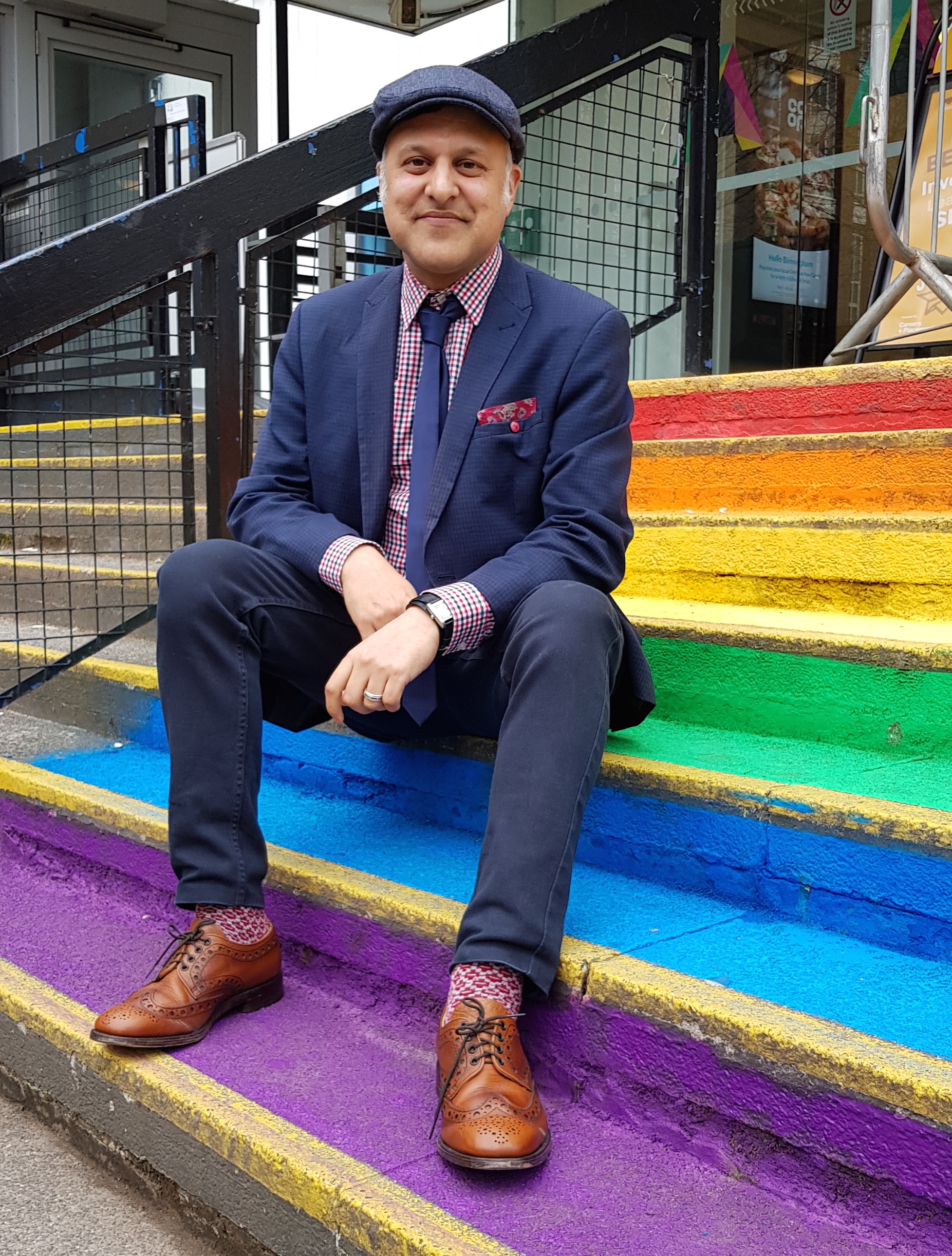
Image Credit: Courtesy of Khakan Qureshi
Khakan Qureshi, founder of Birmingham South Asians LGBT – Finding a Voice, said that lockdown hasn’t really affected his Ramadan as he continues to go to work, as an independent living officer supporting homeless people.
However, as a diabetic, he finds observing the fast difficult. “My anxiety levels have increased,” he said.
“I have to be mindful and manage my diabetes as best as I can. That means I have to eat a light snack every four hours to maintain my blood sugar levels. Even though I am not observing Ramadan in the typical way, I am considerate of others and help the less fortunate to make their lives better.”
During Ramadan, he is reflecting on the human rights issues facing minority groups. “I [am thinking about] all those who are marginalised, including LGBT+ who are not able to come out, as well as people who are elderly, disabled, BAME, and homeless,” he explained.

